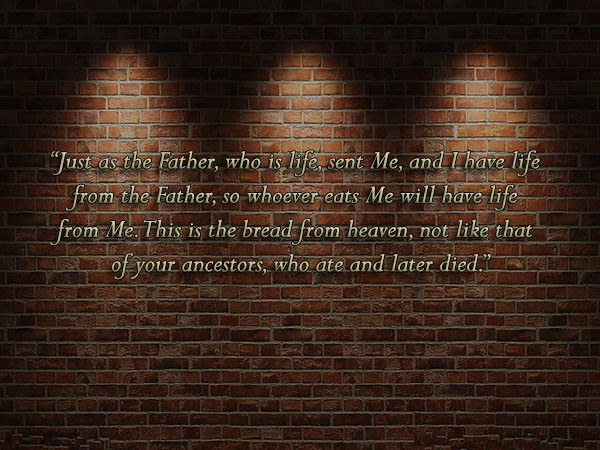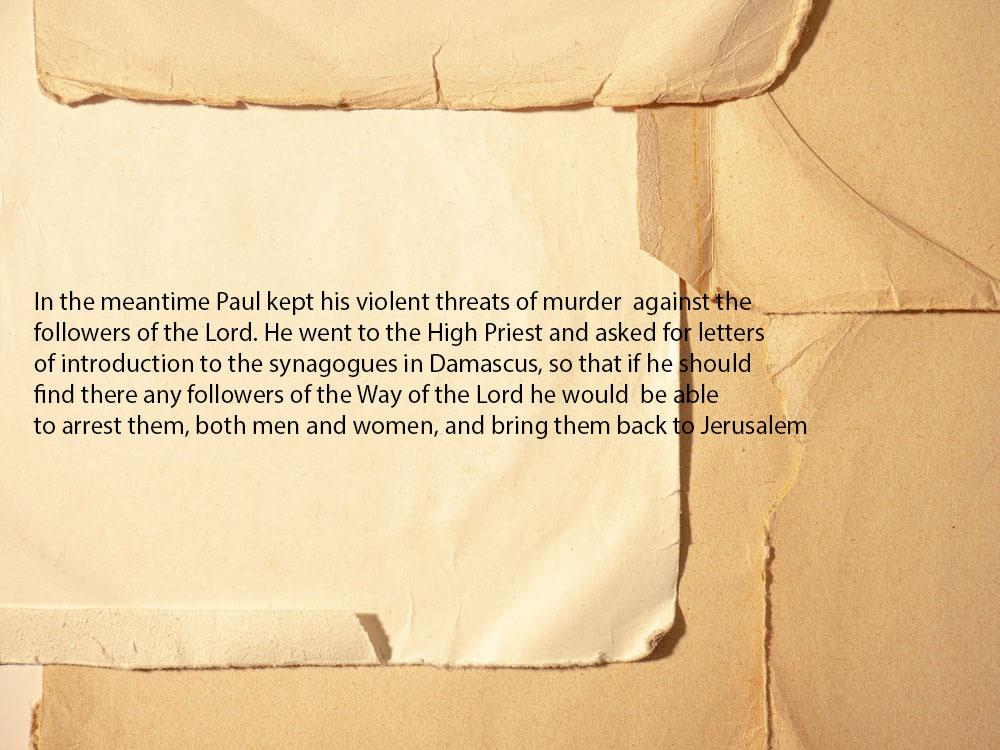Jn 5:1-16
After this there was a feast of the Jews, and Jesus went up to Jerusalem. Now, by the Sheep Gate in Jerusalem, there is a pool (called Bethzatha in Hebrew) surrounded by five galleries. In these galleries lay a multitude of sick people: blind, lame and paralyzed.
(All were waiting for the water to move, for at times an angel of the Lord would descend into the pool and stir up the water; and the first person to enter the pool, after this movement of the water, would be healed of whatever disease that he had.)
There was a man who had been sick for thirty-eight years. Jesus saw him, and because he knew how long this man had been lying there, he said to him, “Do you want to be healed?” And the sick man answered, “Sir, I have no one to put me into the pool when the water is disturbed; so while I am still on my way, another steps down before me.”
Jesus then said to him, “Stand up, take your mat and walk!” And at once the man was healed, and he took up his mat and walked.
Now that day happened to be the Sabbath. So the Jews said to the man who had just been healed, “It is the Sabbath, and the Law doesn’t allow you to carry your mat.” He answered them, “The one who healed me said to me, ‘Take up your mat and walk!’” They asked him, “Who is the one who said to you: Take up your mat and walk?” But the sick man had no idea who it was who had cured him, for Jesus had slipped away among the crowd that filled the place.
Afterwards Jesus met him in the temple court and told him, “Now you are well; don’t sin again, lest something worse happen to you.” And the man went back and told the Jews that it was Jesus who had healed him. So the Jews persecuted Jesus because he performed healings like that on the Sabbath.
REFLECTION
Paralysis is a serious illness that renders a person partially or completely immobile. It can be physical, psychological, or spiritual, temporary or permanent. Affecting one’s spirit, paralysis can render the person incapable to act or even to believe. In today’s story, we are presented with a paralytic for 38 years. A numerical device is used here to help us remember the exodus event, which actually took only 2 years. Because of the Israelites lack of faith in God and in their capacity to conquer the land from the Canaanites, they spent 38 more years wandering in the desert until they were able to trust God enough to help them enter the Promised Land. In effect, they were spiritually paralyzed for 38 years, unable to reach their goal. The paralytic’s situation is a microcosm of the exodus and our own faith journey. The paralytic had no one to support him nor did he believe that someone would until Jesus came. But he needed to express first his desire for healing and his need for help, an affirmation of the relational nature of Christian faith. In what way are we like the paralytic? What paralyzes us from living our faith?
CLARETIAN COMMUNICATIONS FOUNDATION, INC.
8 Mayumi Street, U.P. Village, Diliman, 1101 Quezon City, Philippines
Tel.: (02) 921-3984 • Fax: (02) 921-6205, 927-7429
Bookstore: (02) 924-6835
Email: ccfi@claretianpublications.com / cci@claret.org
Website: www.claretianpublications.com






